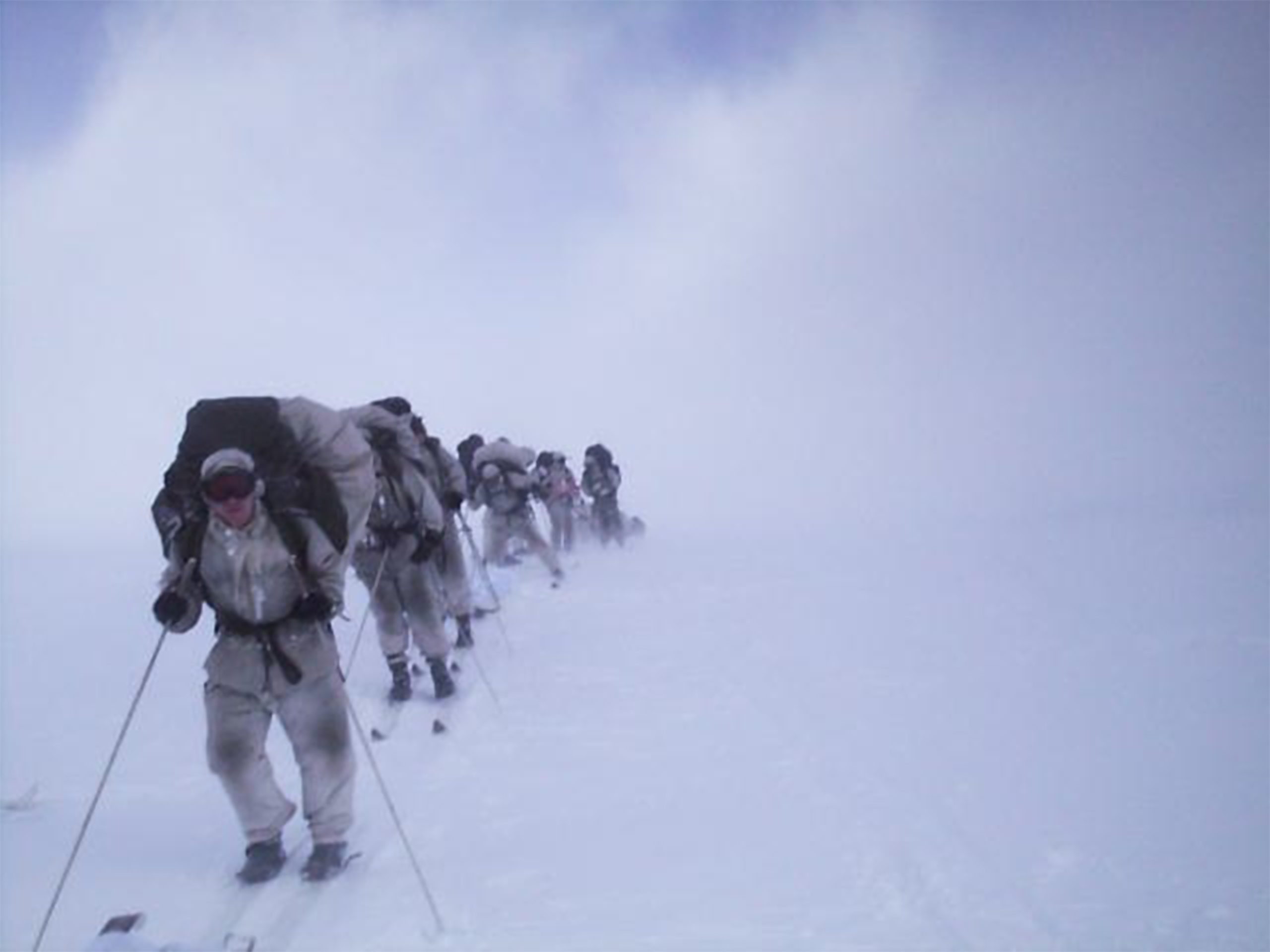
Image: Max Lauker
‘On the outside there was a bit of smoke, it smelled like there had just been an explosion. I heard small arms fire, and I crouched down, keeping the briefcase from falling down. Earlier on, I almost forgot the briefcase but remembered it just in time – it had a shoulder sling, and I slung it over my right shoulder. My adrenaline was pumping, ‘breathe just breathe’, I said silently. I saw an AK assault rifle in the grass, half assembled, with its piston and other parts scattered around it, as well as a magazine with live rounds. The officer was shouting, I felt everything slow down, ‘listen you need to get out of here now, there is only one way out.’
These lines are from a fascinating story about a man whose career was shaped by the War on Terror, a real-life concept that existed for a while. The story is in a book called “Number 788,” written by Max Lauker and Antonio Garcia. It’s all about his time in the Swedish Special Operations, getting ready for NATO and the War on Terror. Mr. Lauker served in the Special Swedish Armed Forces from 2002 to 2018, doing special operations and intelligence work in Stockholm and Karlsborg. He went on many secret missions to places like Kosovo, Iraq, Afghanistan, Africa, and the former Eastern Block. Now, he’s in the private security sector, focusing on intelligence.
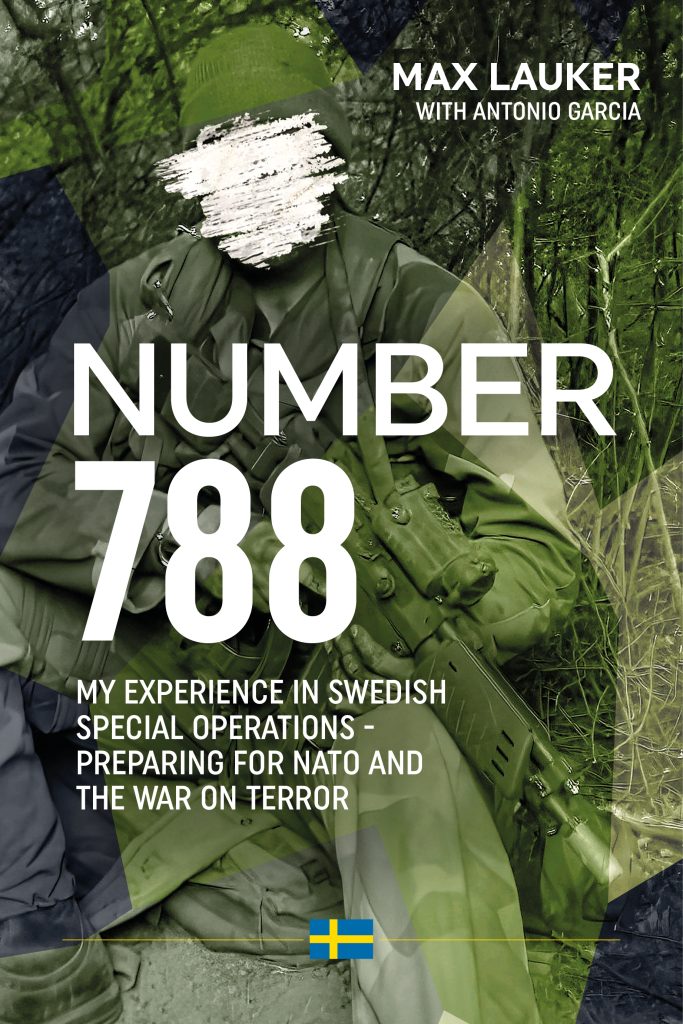
The co-author, Antonio Garcia, is a civil servant and research fellow at Stellenbosch University. He has also taught at Durham University and the Open University. Mr. Garcia was a combat engineer in the SANDF and served in missions in the Sudan, the DRC, and South Africa with its borders. He’s written a lot about military history and strategy.
We had a chat with Mr. Lauker and Mr. Garcia, brothers in arms, about their book and various aspects of the War on Terror.
THA: What sparked the decision to embark on the journey of writing a book?
Mr. Lauker: I was forced into it lol. No, it was a mutual friend of mine and Tony who had tried to get me to write about my experiences for years, and in 2022 it made sense to write it as I wanted to tell a part of my story unfiltered.
THA: Furthermore, the collaboration with Antonio Garcia must have an intriguing backstory – how did the two of you come together for this literary venture?
Mr. Lauker: Tony and I have a mutual military colleague and friend in South Africa. He had been persuading me for about ten years to write a book and in 2022 I finally said ‘Yes, but I don’t know where to start’. So, he put me in contact with Tony. A week later we signed a book contract, and the rest is history.
THA: And you Mr. Garcia, what inspired your collaboration with Max Lauker in penning this compelling book?
Mr. Garcia: A mutual friend, Jason, also a soldier had introduced us, and to be completely honest he planted the seed that eventually resulted in this book. Jason an old friend knew about my work, and research in military history, contemporary security studies, and biography, and had made an argument for the value of Scandinavian military history and first-person story. He was also busily convincing Max about the value of a book. Over the past few years, my research and most recent book have been focused on the First World War, and on a personal level I wanted to refocus on contemporary military operations. Max’s book provided the perfect opportunity, and although this gave us the platform, an aim, and a product, it was also the start of a new friendship – one between brothers in arms, although neither of us wears uniform anymore.
THA: Where did you find your most impactful contributions to its creation?
Mr. Garcia: It is hard to say where my most impactful contributions are. Max provided the narrative, it is after all his story. But as a biographer, I think at least to some degree I helped shape the story, craft the narrative, and provide a sounding board to ideas, and concepts. A co-authorship, in my view, requires so many different things – joint vision, interest, commitment, and passion, and in Max, I found a brilliant writer.
THA: Max Lauker’s service in the Swedish Armed Forces and your diverse experience in peace, and African regional security missions undoubtedly shaped this narrative. How did these unique backgrounds influence the book’s development?
In a sentence, our unique backgrounds influenced the writing of this book in that we both drew from our mutual understanding and passion for military history, and soldiering. At its core, this story is based around Max’s extraordinary career. It is something really out of this world, like a Scandinavian version of Bravo Two Zero – hardcore but understated.
Our backgrounds are different but have some commonality in that Max and I both served at a similar time, although in different militaries, on different continents, and different contexts. When I flew in helicopters to do reconnaissance it was to build bridges or remove unexploded ordinance, Max flew in choppers to act as part of a quick reaction force, put down fire, do reconnaissance behind enemy lines, or covert operations – he was hardcore.
Life of Deception in Combatting the Terror
This type of work changes who you are, Mr. Lauker says about living a life that is not your own. Mr. Garcia emphasizes the platforms that promote terror are the most daunting challenge in the realm of combatting the terror…
THA: Mr. Lauker, your extensive service in the Swedish Armed Forces from 2002 to 2018 is an impressive chapter in your bio. Amidst the war on terror, what specific aspect of your work proved to be the most challenging?
Mr. Lauker: I would say the personal challenges of living a life that is not your own, like not having control over where you are going to be and for how long, makes you miss out on the opportunities to have a stable life with a family. The psychological impact this type of work has on you basically changes who you are and you find yourself rooted in a life of deception that is hard to dig your way out of.
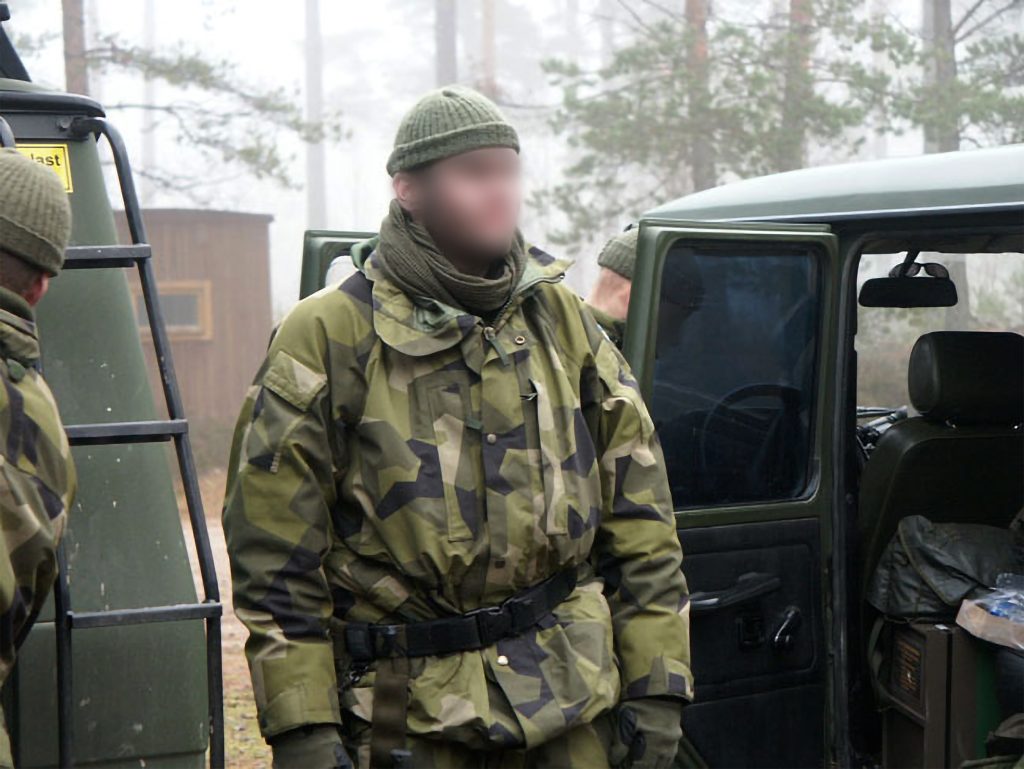
THA: In your perspective, what was the most formidable challenge faced by a particular country in this global struggle?
Mr. Lauker: As an operator or soldier, you need to see both sides, even the opposing ones. You must zoom out of your own perspective since you are implementing a position that your government or allies gave you. But in regard to challenges, I think the main challenge today and, in the past, conflict or not, is understanding. Long-lasting peace can only be achieved by understanding and to some extent acceptance of each other. War should always be a last resort. We will always need soldiers and violence to a degree, but we need to work on minimizing the need for that.
THA: Mr. Garcia, in the realm of combating terror, what do you believe poses the most daunting challenge currently?
Mr. Garcia: I think the most daunting challenge at the moment is the platforms and financing provided to promote terror and narratives of hate. The lower-level tactical actions are often the result of strategic, resource, and propaganda initiatives. The core of the problem is political, social, and one where real and perceived differences are exploited; and then those differences are politicized often resulting in violence. Max brings this point alive in a scene where he infiltrates a terrorist organization, showing the common human motivations, and the sheer difficulty of such a task.
THA: Reflecting on the war against terror, how has its trajectory evolved over time, and which pivotal events have left an indelible mark on its course?
Mr. Garcia: The pivotal event that transformed the modern military context was the 9/11 attacks. Since then, the operations and invasions of Iraq and Afghanistan have led to increased insecurity in the Middle East. Al-Qaeda was crushed, and many other extremist groups came to the fore. Max shares his experiences and how the Swedish military pivoted and slowly started preparing to take part in this conflict – the work in the Balkans is particularly interesting. A fuller story on the War on Terror is coming out in Max’s next book.
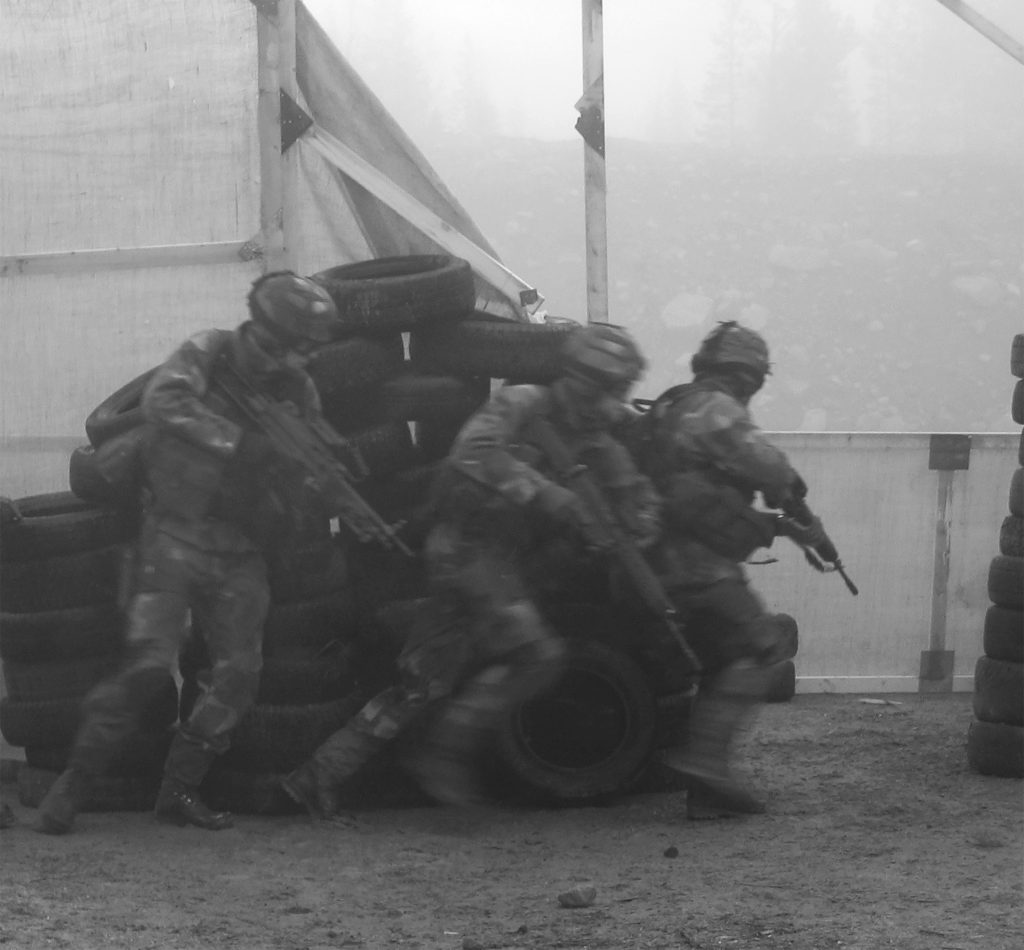
THA: As we delve into the intricacies, what ongoing challenges emerge in the relentless fight against terrorism?
Mr. Garcia: In the fight against terrorism, perhaps the first intricacy is the battle of definitions. Terrorism could mean many things, such as a tactic or approach, but we generally take ‘The War on Terror’ or ‘fighting terror’ to refer to a fight against extremist groups. In a similar way to fighting communism in a previous era, the difficulty with confronting terrorist, or extremist groups is that one is fighting an ideology, which cannot be killed. From the conceptual to the practical, asymmetric warfare is always challenging for conventional forces. It is in this that Max shows the value of special operations in conducting intelligence-led operations in various contexts.
“Who Dares Wins”
Many captivating moments marked the career of Mr. Lauker. The profession of arms was his destined path, a calling that was forged by enemy fire.
THA: Mr. Lauker, The saying in your bio, “Who Dares Wins,” adds a captivating dimension. Can you share an event that stands out in connection with this powerful motto?
Mr. Lauker: The motto belongs to the British 22nd SAS and I think it encapsulates the mindset of Special Operations. It also brings out the daring creativity that is needed to solve complex problems that arise in this line of work. I remember many moments like that but one that stands out was a multi-agency manhunt in Venezuela which you can read about in Chapter 11.
THA: Additionally, your bio mentions that your calling was the profession of arms. Was there a defining moment when you realized this was your destined path?
Mr. Lauker: Yes and no. I didn’t imagine a life in uniform before I was called up for compulsory military service. During my basic training, I discovered that I had a talent for military work. This was just an appetizer since your calling can only be truly forged by enemy fire. So, the defining moment lies in between the missions in Colombia and The Balkans.
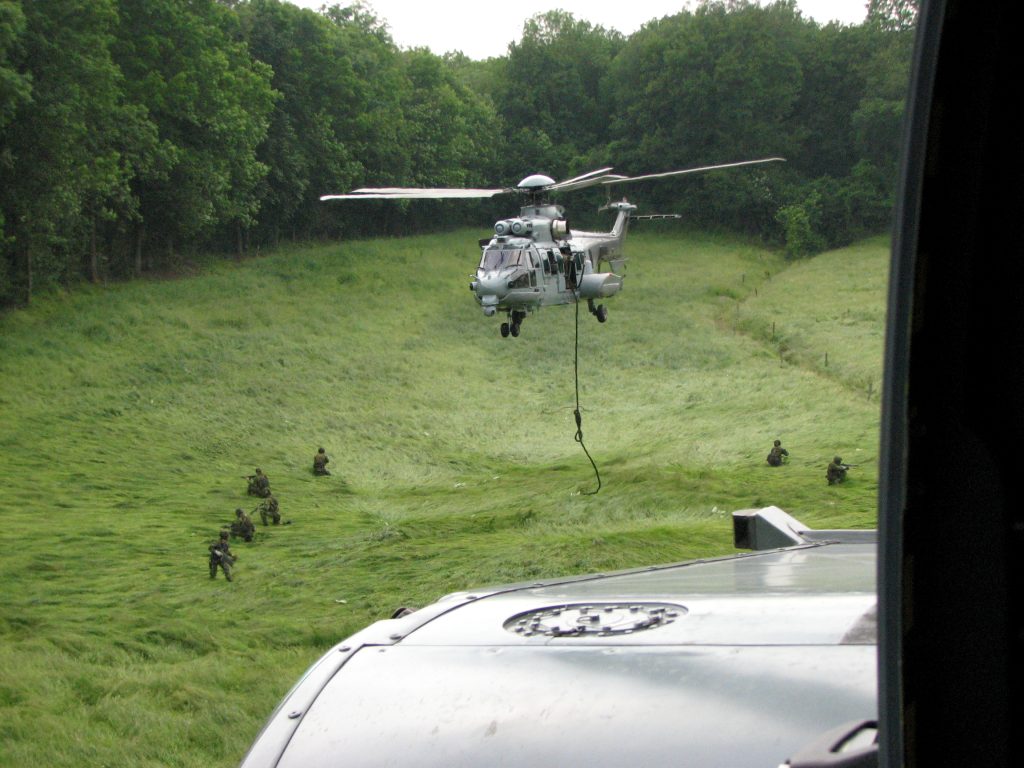
THA: Your experiences, including firing weapons in the heat of battle and infiltrating terrorist groups, undoubtedly shaped you. How did these intense encounters transform you on a personal level?
Mr. Lauker: It changes you on a fundamental level and you are left to learn to adapt to the scars it leaves on your inner workings, but it gives you a unique insight into your capabilities and limits. War doesn’t build heroes, it forges survivors.
Number 788: Their Favorite Excerpts
THA: As we wrap up, could you highlight a particularly intriguing part or chapter of your book?
Mr. Lauker: I have a favorite paragraph from Chapter 5 that evokes fond memories.
‘On the outside there was a bit of smoke, it smelled like there had just been an explosion. I heard small arms fire, and I crouched down, keeping the briefcase from falling down. Earlier on, I almost forgot the briefcase but remembered it just in time – it had a shoulder sling, and I slung it over my right shoulder. My adrenaline was pumping, ‘breathe just breathe’, I said silently. I saw an AK assault rifle in the grass, half assembled, with its piston and other parts scattered around it, as well as a magazine with live rounds. The officer was shouting, I felt everything slow down, ‘listen you need to get out of here now, there is only one way out.’
THA: Lastly, akin to Mr. Lauker, could you, Mr. Garcia, spotlight a particularly intriguing chapter or aspect of the book that you’d like to emphasize?
Mr. Garcia: I can provide three short extracts to give a flavor of the book. This is a coming-of-age story, yes it is military, and yes it is hardcore but it starts with a teenager who is called up for service. The volume details the process of Max’s training, selection, and skills development and then takes one across the world ending up in Kosovo.
The start
The white envelope was creased at the edges, I found the middle of the flap, and I opened it. ‘Max – you are hereby ordered to attend the Armed Forces station, in Stockholm for compulsory military selection and training. A sharp intake of breath.
Looking at my call up letter, I felt the weight of my father’s shadow hanging over me, ‘what did it mean to be a real man?’ Perhaps all boys have a love hate relationship with their fathers, I don’t know. Mine was difficult. He was tall, strong, tough and an asshole.
Kosovo
‘Men with weapons could be seen in our headlights. By muscle memory, I pushed the PTT on the radio laying in my lap. ‘Stand by for contact.’ I flicked off the safety of the AK between my legs and grasped the pistol grip.’